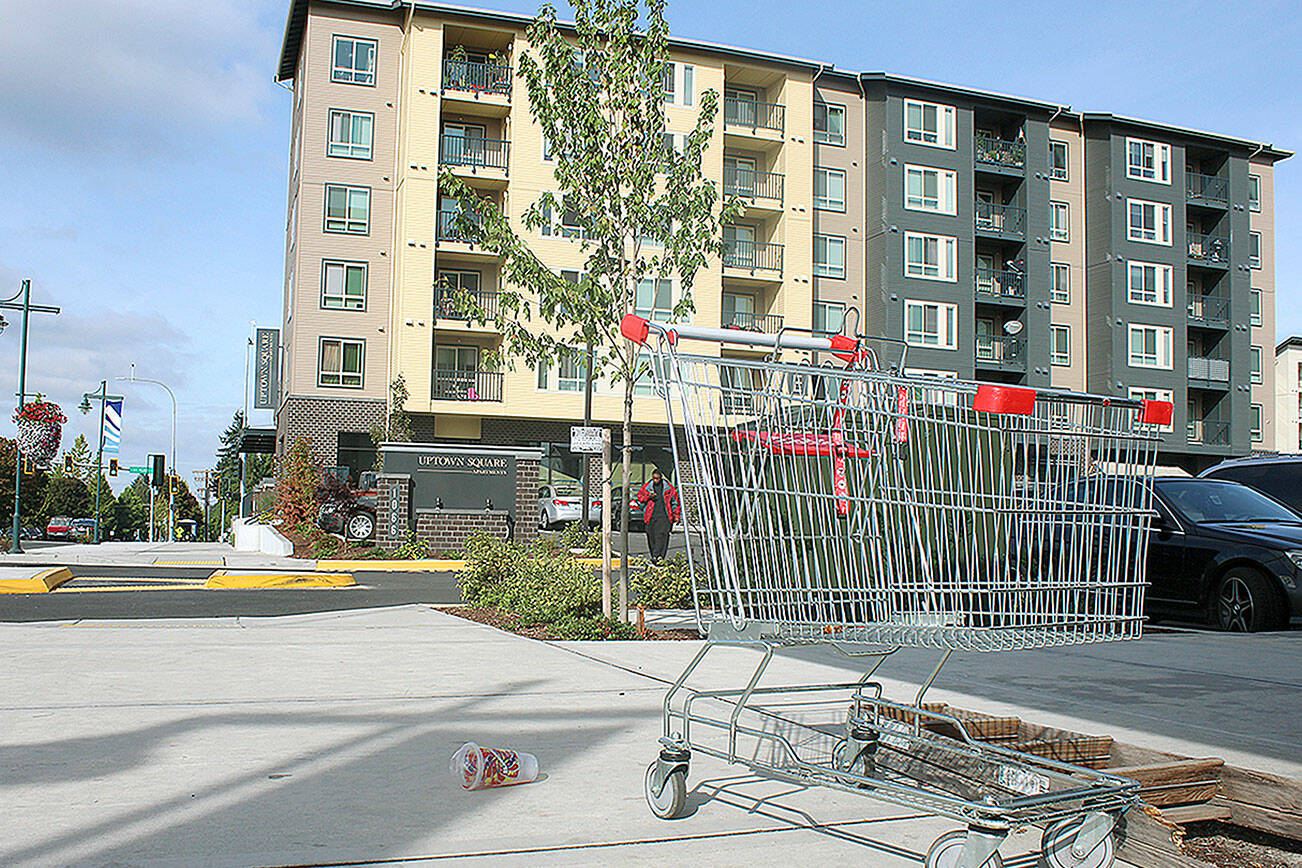The Federal Way City Council passed an ordinance that makes it illegal to push or possess a shopping cart in any city right-of-way.
On Nov. 15, five council members approved new shopping cart regulations that prohibit anyone from pushing, pulling, possessing or operating a shopping cart on any public right-of-way, including sidewalks or roadways. The two votes against the ordinance came from councilmembers Lydia Assefa-Dawson and Hoang Tran.
Councilmember Tran said he recognized there is an issue with people and shopping carts in the city, but in passing the ordinance, “I feel like we are targeting a group of vulnerable people in the community,” he said. “I feel like this ordinance is intended to drive homeless people out of the city without providing any meaningful help.”
Tran, who said he was once homeless and called the ordinance “mean spirited,” said the ordinance has unintended consequences impacting people such as the elderly or single parents who lack other means of transportation for their items or groceries.
The estimated annual cost of the program’s operations is $250,000 and the cost may decrease over time, said Brian Davis, community development director of the city.
Several councilmembers said the ordinance won’t fix or address the underlying issues of homelessness, nor will it actually help people get out of homelessness. This is because the city does not have a system in place to support people after they are contacted by police over their shopping cart, several councilmembers noted.
Deputy Mayor Susan Honda supported the idea brought forth by a resident about creating a drug treatment facility in Federal Way, in addition to connecting people with peer navigators in Federal Way’s Community Court. Councilmember Jack Dovey also supported the idea of creating a drug and alcohol treatment center.
The issue grew from the use of shopping carts by people in the city who appear to be homeless or transient, which numerous residents have talked about during public comment over the past several months.
In 2018, the city passed an ordinance requiring all shopping carts to carry identification signs. Under that law, abandoned shopping carts can be impounded by the city, with the relevant fees charged to their retail owners.
The ordinance now passed by the city broadens the law to affect vulnerable individuals, not just businesses.
The updated shopping cart laws make it a Class 3 infraction to push or possess a shopping cart in any city right-of-way, such as a sidewalk or road, and is punishable by a $50 ticket. It would also make the carts in those situations and all the items inside subject to seizure and impounding, whether or not those carts have proper identification signage.
Theft of a shopping cart with proper ID signage, which is a more serious crime than possession, remains a misdemeanor under city code, punishable by up to $1,000 in fines and up to 90 days in jail.
An officer from the Special Operations Unit will be tasked with contacting people accused of violating the shopping cart laws.
The law expands the existing impound program to include stolen shopping carts seized under the new infraction and exempts all carts with proper ID signage and theft-prevention measures from seizure fees. The city must still to develop a system to store a person’s personal items after they are seized by police during a shopping cart infraction.
Councilmember Erica Norton, who said she was homeless and addicted to drugs 16 years ago, voted for the ordinance and said becoming uncomfortable changed her life for the better.
“It’s called hitting bottom,” she said. “And the more we help them, and give them services, and coddle them, the less likely it is that these people are going to stand up and learn how to take care of themselves.”
The new ordinance takes effect Thursday, Dec. 15.
Reporter Alex Bruell contributed to this story.
Talk to us
Please share your story tips by emailing editor@kentreporter.com.
To share your opinion for publication, submit a letter through our website https://www.kentreporter.com/submit-letter/. Include your name, address and daytime phone number. (We’ll only publish your name and hometown.) Please keep letters to 300 words or less.

